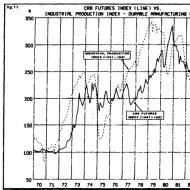
Consumer lending agreement: everything that is important for the borrower. What you need to know about the consumer loan agreement We consider individual conditions
Contract consumer credit (loan) consists of general and individual conditions. General conditions are established by the lender unilaterally for the purpose of repeated application (parts 1, 3, article 5 of the Law of December 21, 2013 N 353-FZ).
The individual terms of the agreement are agreed upon by the lender and the borrower individually. They are reflected in the form of a table in the prescribed form, starting from the first page of the agreement, and include, in particular, the following conditions (parts 9, 12, article 5 of Law No. 353-FZ).
1. Amount of credit (loan) or credit limit
The amount of the loan (loan) is the amount of funds provided to the borrower. The credit limit is maximum amount funds that can be provided to the borrower, or the maximum amount of his one-time debt to the lender under the agreement, under the terms of which partial use of a consumer credit (loan) is allowed (clause 1 of article 807, clause 1 of article 819 of the Civil Code of the Russian Federation; clause 4 part 1 of article 3, clause 1 of part 9 of article 5 of Law N 353-FZ).
2. The term of the agreement and the term of the loan (loan) repayment
The borrower may return the loan (loan) amount ahead of schedule in full or in part by notifying the lender at least 30 calendar days prior to the day of repayment, unless a shorter period for notification is established by the agreement.
Without prior notice to the lender, the borrower has the right to return it ahead of schedule within 14 calendar days from the date of receipt of the loan (loan) with payment of interest for actual term lending. If a targeted loan (loan) has been provided, the borrower has the right, within 30 calendar days from the date of its receipt, to early return the entire amount of the loan (loan) or part of it with payment of interest for the actual lending period also without prior notice to the lender (clause 2 of Art.810, clause 2 of article 819 of the Civil Code of the Russian Federation; clause 2 of part 9 of article 5, part 2 - 4 of article 11 of Law N 353-FZ).
3. Loan (loan) currency
Consumer loans (loans) can be issued in Russian or foreign currency. At the same time, microfinance organizations (MFOs) are not entitled to issue consumer loans in foreign currency (clause 3 of part 9 of article 5 of Law N 353-FZ; part 2.1 of article 3, clause 3 of part 1 of article 12 of the Law of 02.07.2010 N 151-FZ).
4. Amount and procedure for payment of interest for using a loan (loan)
The credit agreement (loan agreement) is of a compensatory nature, and it must reflect the condition on interest, which is a payment for the use of money (clause 1 of article 819 of the Civil Code of the Russian Federation; clause 4 of part 9 of article 5 of Law N 353- FZ).
Under short-term (up to a year) consumer microloan agreements concluded from 01.01.2017, MFOs are not entitled to charge interest in excess of three times the amount of the loan. Under contracts concluded in the period from 03/29/2016 to 12/31/2016, such a prohibition is in effect if the amount of accrued interest and other payments under the contract (except for forfeit and fees for additional services) is four times the amount of the loan (clause 9, part 1 Art.12 of Law N 151-FZ; part 7 of Art.22 of the Law of 03.07.2016 N 230-FZ).
5. The number, size and frequency (timing) of payments
The borrower must agree on the number, size and frequency (timing) of his payments or the procedure for determining them, as well as the procedure for changing them in case of partial early return credit (loan). Payments can be divided into those included and not included in the calculation of the full cost of the loan (loan). The second, in particular, includes payments related to non-performance or improper performance by the borrower of the terms of the contract (clauses 6, 7, part 9 of article 5, part 4, 5 of article 6 of Law N 353-FZ).
6. Procedure for repayment of a loan (loan)
Repayment (return) of a loan (loan), as a rule, is made by debiting the lender of funds from the borrower's account on his payment order or without it in a non-authoritative manner. The contract must provide for a free way to repay the loan (loan) in locality at the place of receipt or at the location of the borrower (clause 8, part 9, part 22 of article 5 of Law N 353-FZ).
7. Full cost of the loan (loan)
The full cost of the loan (loan) must be placed in the upper right corner of the first page of the agreement (part 1 of article 6 of Law N 353-FZ).
The calculation of such cost includes payments (part 4 of article 6 of Law N 353-FZ):
- on the repayment of the principal amount of the debt and on the payment of interest;
- payment for the release and maintenance of an electronic means of payment;
- payments in favor of third parties, if the issuance of a loan (loan) is made dependent on the conclusion of an agreement with a third party (for example, in favor of an insurance company when insuring the life of the borrower, his liability or collateral);
- the amount of the insurance premium under the insurance contract, if the beneficiary is not the borrower or his close relative, or if, in connection with the conclusion of such an agreement, the lender offers other terms of the credit (loan) agreement, including in terms of the period of its repayment or full cost;
- payments in favor of the lender, if the issuance of a loan (loan) is made dependent on such payments (for example, bank commissions).
Note!
Charging a commission for issuance credit funds illegal (h. 19 art. 5 of Law N 353-FZ).
8. Borrower's responsibility
The agreement may establish the responsibility of the borrower for improper fulfillment of its conditions, the amount of the forfeit (fine, penalty) or the procedure for their determination (clause 12, part 9, article 5 of Law N 353-FZ).
At the same time, if the borrower does not return the loan (loan) amount on time, in addition to interest for using the loan (loan), interest is charged on it for non-fulfillment of the monetary obligation. In case of delay in the payment of interest for the use of a loan (credit), interest may also be charged for non-fulfillment of a monetary obligation or a forfeit established by the agreement (clauses 1, 4 of article 395, clause 1 of article 811 of the Civil Code of the Russian Federation).
In addition, if the borrower violates the terms of repayment of the loan (loan) or payment of interest, the lender may require an early return of the entire remaining amount of the loan (loan) along with the interest due (Article 14 of Law No. 353-FZ).
In the event of a delay in repayment of the loan amount or payment of interest under short-term consumer microloan agreements concluded from 01.01.2017, the MFO has the right to continue to accrue interest on the loan only on the outstanding part of the principal amount. Such interest is calculated until reaching total amount interest payable in the amount equal to two times the amount of the outstanding part of the loan. At the same time, the MFO also has the right to charge a forfeit (fines, penalties) and other measures of liability on the outstanding part of the principal amount of the debt (parts 1, 2, article 12.1 of Law N 151-FZ).
The agreement may contain a condition on the possibility of prohibiting the assignment by the creditor of the rights (claims) under the agreement to third parties (clause 13 of part 9 of article 5, part 1 of article 12 of Law N 353-FZ).
10. Purposes of using the credit (loan)
The agreement may include a condition on the use of the loan (loan) by the borrower for certain purposes. Moreover, in case of violation by the borrower targeted use credit (loan), the lender has the right to refuse further lending to the borrower under the agreement and (or) demand a full early repayment of the loan (loan) (clause 11, part 9 of article 5, part 13 of article 7 of Law N 353-FZ).
11. Indication of the need for the borrower to conclude other agreements
The agreement may include an indication of the need for the borrower to conclude other agreements required for the conclusion or execution of a consumer credit (loan) agreement, for example, an insurance agreement (clause 9, part 9, article 5 of Law N 353-FZ).
In addition to those indicated in individual conditions other conditions may be included in the agreement. If general terms and Conditions contracts contradict its individual conditions, the latter are applied (part 10 of article 5 of Law N 353-FZ).
Zen! Zen! Zen! Our Yandex Zen channel has even more special legal materials in a convenient and beautiful format.
Most of the population Russian Federation I am familiar with such a banking product as a loan. In addition to obtaining mortgages and car loans, clients take out a loan to purchase household appliances, expensive clothes or jewelry. All general and individual conditions of a consumer loan agreement - a document that legally confirms financial relations between the borrower and the bank.
Features of the contract
The agreement is drawn up in order to officially regulate the relationship between the bank and its client. The financial company agrees to provide him with a loan for a specified period under a fixed interest rate... And the person who has entered into a consumer loan agreement with the bank is obliged to return the borrowed funds and the overpayment on time on the specified date.
According to the law, the document may also indicate the conditions for insuring the collateral or the client's life. Although many organizations have developed their own forms, there are general conditions for a consumer loan agreement:
- the borrower signs it voluntarily;
- the document can only be concluded on the territory of the Russian Federation;
- the client carefully examines the conditions and by his signature expresses his consent to them and the obligation to fulfill them.
In the treaty, the majority financial companies indicates the provision, according to which the lender issues a loan voluntarily, and not due to forced circumstances. The document must highlight the general and individual parts, both must act in accordance with the law. After signing, the opportunity to make any amendments disappears, so you need to carefully read the information. If the client is not satisfied with the terms of lending, then he needs to find a more suitable bank.
General terms
General consumer loan conditions are parameters that the bank has developed for all customers without exception. They cannot be changed under any pretext. Usually the provisions include several points:
- contact phone numbers of the bank.
- full name of the financial company;
- actual and legal address;
- details and settlement accounts of the organization;
- contact phone numbers of the bank.
The rules for filling out questionnaires and submitting applications, and making decisions by the banking committee remain the same for all borrowers. Information about all available to them remains the same for clients. banking products, bet sizes and compulsory insurance... The amounts for a certain type of loan and other payments do not depend on the work of specific lenders.
Debt repayment options also remain common. They are laid out in the contract, and the client can choose the method that suits him. For some types of loans provide an initial feeproviding collateral or guarantors. And also the clause on the obligations of the borrower is indicated in the agreement, although it is often skipped. This part gives all the information about fines, penalties, penalties, especially the payment of payments on foreign currency debts.
The general can also be called the possibility of resale of property rights, reports on the disposal of funds received, rules for resolving emerging demands. If the client sees only individual conditions in the contract, then the bank employee is obliged to provide him with a link where you can download and read the general points.
Individual parameters
After familiarizing yourself with the general conditions for issuing a consumer loan, you must carefully examine the individual points. Each form must contain a tabular form with specific requirements and rules. Neither the lender nor his borrower can change the information contained. A blank must be filled with a dash.
Banks can add their own conditions, but they should approach the mandatory ones:
- crediting period;
- currency and loan amount;
- interest rate, method of its calculation and amount of overpayment for each year;
- the amount of monthly payments and the date of their payment;
- the possibility of early closure;
- ways of obtaining a loan - in cash, to a bank account or card.

If the company offers the conclusion of additional contracts, then this should also be provided for in individual conditions. All information on guarantors and pledge is entered into the form.
Free sections

Until 2014, banks had the right to charge their customers an additional commission for concluding an agreement, printing it out and calculating regular payments. Now, in accordance with the law, an agreement with general conditions must be signed free of charge without any additional payments from the borrower.
The only thing a company can ask for individual pay is the paper on which the document will be printed. But this usually only happens in private credit companies, state banks do not pay attention to such trifles and give the entire package of forms to the client for free. The borrower should not make any thanks and contributions even at the request of an employee of the organization.
Loan cancellation option

According to the current legislation, the client has the right to refuse to receive the debt even after signing the contract. But this procedure is possible only if the money has not yet been issued. Article 807 of the Civil Code of the Russian Federation states that the document does not enter into force at the time of signing, but during the transfer of funds from the lender to the borrower.
If the client has already signed the contract and all accompanying documents, but has not yet received the borrowed amount at the cash desk, then he may change his mind, return to the bank employee and terminate the agreement. But if the borrower has already been given the money, then he has the opportunity to pay off the debt ahead of schedule, along with all accrued interest during the period of use.
Full loan cost
The full cost of the loan is also indicated in the individual conditions of the consumer loan agreement. A sample form can be found on the official website of each bank or ask the manager for it. This item includes several parameters:

- loan body - the actual loan amount;
- interest that will be charged for the entire period of use of the debt;
- other payments stipulated by companies;
- insurance of collateral or life of the client.
There are several contributions that add to the value of the debt. These include penalties and fines for late payments, payments regulated not by the bank's charter, but by the legislation of the Russian Federation. It is necessary to carefully read the financial side of the contract, because an absent-minded attitude to the information presented can lead to unexpected debt obligations.
It is better to ask your personal manager about hidden fees, the procedure for calculating penalties and changes in the amount of the loan, which is issued in foreign currency. There are two ways to calculate this debt. At the first, the interest rate and the amount of payments depends on the rate that was valid at the time of signing the contract. The second involves a change in their amount depending on the growth or decline of the dollar, euro or other foreign funds... In this case, the accrued interest may increase or decrease.
Termination rules
The bank can terminate the agreement earlier than the specified term, asking the client to pay immediately the entire remaining amount of the loan. But the borrower has the right to end the relationship with the company only after fulfilling all the conditions specified in the document. The client preliminarily notifies his organization of his intention to close the debt and terminate the agreement. After considering the application, the bank makes recalculations of interest, because the overpayment in case of early repayment is reduced. If the company's answer is positive, then an additional form must be issued, which indicates the new conditions for the loan.

There are also several exceptions that allow the client to terminate the contract ahead of time:

- the bank has not transferred funds to the account or card;
- the interest rate has changed, although such a right was not indicated in the document;
- contract form bank employee instead of himself, he allowed a person not authorized to fill in and sign it.
The bank has some advantages that allow it to terminate the agreement unilaterally. A consumer loan is issued for a specific purpose, which is confirmed by a special report. If the client has spent money on another purchase, then the company may refuse him further credit. Large amounts issued against security.
Under unforeseen circumstances or through the fault of the borrower, the collateral may be lost, which also affects the bank's decision. Violation of the terms of the contract, late payment of payments or their absence is also a pretext for terminating the contract. A document is considered invalid if it contains erroneous data about the client and the lender, has a forgery by the bank manager, or does not notify the borrower about hidden fees.
Any loan agreement consists of a list of general and individual conditions. The client must read them carefully before putting his signature on the form. The document confirms the relationship between the financial institution and the borrower.
Article 5. Conditions of the consumer credit (loan) agreement
1. The consumer credit (loan) agreement consists of general conditions and individual conditions. A consumer credit (loan) agreement may contain elements of other agreements (mixed agreement), if this does not contradict this Federal Law.
2. To the terms of the consumer credit (loan) agreement, except for the conditions agreed by the lender and the borrower in accordance with part 9 of this article, the Civil Code of the Russian Federation applies.
3. The general conditions of the consumer credit (loan) agreement are established by the lender unilaterally for the purpose of repeated application.
4. The lender in the places of rendering services (places of receiving applications for the provision of a consumer credit (loan), including in the information and telecommunication network "Internet") should place the following information on the conditions for the provision, use and repayment of a consumer credit (loan):
1) the name of the creditor, the location of the permanent executive body, the contact phone number for communication with the creditor, the official website on the Internet information and telecommunications network, the license number for banking operations (for credit institutions), information on entering information about the creditor into the appropriate state Register (for microfinance organizations, pawnshops), on membership in self-regulatory organization (for credit consumer cooperatives);
2) the requirements for the borrower, which are established by the lender and the fulfillment of which is mandatory for the provision of a consumer loan (loan);
3) the terms of consideration of an application for a consumer credit (loan) drawn up by the borrower and the lender's decision on this application, as well as a list of documents required for consideration of the application, including for assessing the borrower's creditworthiness;
4) types of consumer credit (loan);
5) the amount of the consumer loan (loan) and the terms of its return;
6) currencies in which a consumer loan (loan) is provided;
7) methods of providing a consumer credit (loan), including with the use of electronic means of payment by the borrower;
8) interest rates in percent per annum, and when variable interest rates are applied - the procedure for determining them that meets the requirements of this Federal law;
8.1) the date from which the interest for the use of the consumer credit (loan) is calculated, or the procedure for determining it;
9) types and amounts of other payments of the borrower under the consumer credit (loan) agreement;
10) ranges of values \u200b\u200bof the total cost of a consumer credit (loan), determined taking into account the requirements of this Federal Law for types of consumer credit (loan);
11) the frequency of payments by the borrower when repaying a consumer loan (loan), payment of interest and other payments on a loan (loan);
12) methods for the borrower to return a consumer credit (loan), to pay interest on it, including a free method for the borrower to fulfill obligations under a consumer credit (loan) agreement;
13) the terms during which the borrower has the right to refuse to receive a consumer loan (loan);
14) methods of ensuring the fulfillment of obligations under the consumer credit (loan) agreement;
15) the responsibility of the borrower for improper performance of the consumer credit (loan) agreement, the amount of the penalty (fine, penalty), the procedure for calculating it, as well as information on when these sanctions can be applied;
16) information about other agreements that the borrower is obliged to conclude, and (or) other services that he is obliged to receive in connection with the consumer credit (loan) agreement, as well as information about the borrower's ability to agree to the conclusion of such agreements and (or) the provision of such services or refuse them;
17) information on a possible increase in the amount of the borrower's expenses compared to the expected amount of expenses in rubles, including when a variable interest rate is applied, as well as information that a change in the exchange rate foreign currency in the past does not indicate a change in its exchange rate in the future, and information about the increased risks of a borrower receiving income in a currency other than the currency of the loan (loan);
18) information on determining the exchange rate of foreign currency in the event that the currency in which the lender transfers funds to a third party indicated by the borrower when providing a consumer credit (loan) may differ from the currency of the consumer credit (loan);
19) information on the possibility of prohibiting the creditor from assigning rights (claims) to third parties under a consumer credit (loan) agreement;
20) the procedure for the borrower to provide information on the use of a consumer credit (loan) (if a condition is included in the consumer credit (loan) agreement on the use by the borrower of the received consumer credit (loan) for specific purposes);
21) jurisdiction of disputes on claims of a creditor against a borrower;
22) forms or other standard forms that define the general terms and conditions of the consumer credit (loan) agreement.
5. The information specified in part 4 of this article shall be brought to the attention of the borrower free of charge. Copies of documents containing the specified information must be provided to the borrower at his request free of charge or for a fee not exceeding the cost of their production.
6. If the creditor attracts third parties to disseminate information about the conditions for the provision, use and return of a consumer credit (loan), such persons are obliged to disclose information in the amount and in the manner specified in part 4 of this article.
7. The general conditions of the consumer credit (loan) agreement should not contain the obligation of the borrower to conclude other agreements or to use the services of the lender or third parties for a fee. The lender cannot demand from the borrower to pay under the consumer credit (loan) agreement payments not specified in the individual terms of such an agreement.
8. When the borrower applies to the lender for a consumer loan (loan) in the amount (with a credit limit) of 100,000 rubles or more or an equivalent amount in foreign currency, the lender is obliged to inform the borrower that if within one year the total amount of payments for all available at the borrower as of the date of contacting the lender for a consumer loan (loan) obligations under credit agreements, loan agreements, including payments on the consumer loan (loan) provided, will exceed fifty percent of the borrower's annual income, for the borrower there is a risk of default on his obligations under the agreement consumer credit (loan) and the application of penalties to it.
9. The individual terms of the consumer credit (loan) agreement are agreed by the lender and the borrower individually and include the following conditions:
1) the amount of the consumer credit (loan) or the credit limit and the procedure for changing it;
2) the term of the consumer credit (loan) agreement and the repayment period of the consumer credit (loan);
3) the currency in which the consumer loan (loan) is provided;
4) the interest rate in percent per annum, and when a variable interest rate is applied - the procedure for determining it that meets the requirements of this Federal Law, its value as of the date of providing the borrower with individual conditions;
(see text in previous edition)
5) information on determining the exchange rate of foreign currency in the event that the currency in which the lender transfers funds to a third party specified by the borrower when providing a consumer loan (loan) differs from the currency in which the consumer loan (loan) is provided;
5.1) an indication of the change in the amount of the borrower's expenses when the variable interest rate of the consumer credit (loan) used in the consumer credit (loan) agreement is increased by one percentage point, starting from the second regular payment, as of the next date after the expected date of concluding the consumer credit (loan) agreement ;
6) the number, size and frequency (timing) of payments by the borrower under the consumer credit (loan) agreement or the procedure for determining these payments;
7) the procedure for changing the number, size and frequency (timing) of payments by the borrower in case of partial early repayment of a consumer loan (loan);
8) methods of execution monetary obligations under a consumer credit (loan) agreement in the locality at the borrower's location specified in the consumer credit (loan) agreement, including a free way for the borrower to fulfill obligations under such an agreement in the locality at the place where the borrower received an offer (proposal to conclude an agreement) or at the location the borrower specified in the consumer credit (loan) agreement;
9) an indication of the need for the borrower to conclude other agreements required for the conclusion or performance of a consumer credit (loan) agreement;
10) an indication of the need to provide security for the fulfillment of obligations under a consumer credit (loan) agreement and requirements for such security;
11) the purpose of the borrower's use of the consumer credit (loan) (if the conditions for the borrower's use of the consumer credit (loan) for specific purposes are included in the consumer credit (loan) agreement);
12) the responsibility of the borrower for improper performance of the terms of the consumer credit (loan) agreement, the amount of the forfeit (fine, penalty) or the procedure for determining them;
13) the possibility of prohibiting the assignment by the creditor to third parties of the rights (claims) under the consumer credit (loan) agreement;
14) the borrower's consent to the general terms and conditions of the consumer credit (loan) agreement of the corresponding type;
15) services rendered by the lender to the borrower for a separate fee and necessary for concluding a consumer credit (loan) agreement (if any), their price or the procedure for determining it (if any), as well as confirmation of the borrower's consent to provide them;
16) the way of information exchange between the lender and the borrower.
10. The individual conditions of the consumer credit (loan) agreement may include other conditions. If the general conditions of the consumer credit (loan) agreement contradict the individual conditions of the consumer credit (loan) agreement, the individual conditions of the consumer credit (loan) agreement shall apply.
11. Individual and general terms and conditions of a consumer credit (loan) agreement must correspond to the information provided by the lender to the borrower in accordance with part 4 of this article.
12. The individual conditions of the consumer credit (loan) agreement specified in part 9 of this article are reflected in the form of a table, the form of which is established regulation Of the Bank of Russia, starting from the first page of the consumer credit (loan) agreement, in clear, well-readable type.
13. A consumer credit (loan) agreement may not contain:
1) a condition on the transfer to the creditor as security for the fulfillment of obligations under the consumer credit (loan) agreement of the entire amount of the consumer credit (loan) or part thereof;
2) a condition on the issuance of a new consumer credit (loan) by the lender to the borrower in order to repay the existing debt to the lender without concluding a new consumer credit (loan) agreement after the date of occurrence of such debt;
3) the conditions establishing the obligation of the borrower to use the services of third parties in connection with the fulfillment of the borrower's monetary obligations under the consumer credit (loan) agreement for a separate fee.
14. Changes in the individual conditions and general conditions of the consumer credit (loan) agreement shall be carried out in compliance with the requirements established by this Federal Law.
15. The borrower, in accordance with the procedure established by the consumer credit (loan) agreement, is obliged to notify the lender of the change in the contact information used to communicate with him, of the change in the method of communication of the lender with him.
16. The lender has the right to unilaterally reduce the constant interest rate, reduce or cancel the fee for the provision of services provided for by the individual terms of the consumer credit (loan) agreement, reduce the amount of the forfeit (fine, penalty) or cancel it in whole or in part, set the period for which it is not charged, or decide to refuse to collect a forfeit (fine, penalty), as well as change the general conditions of the consumer credit (loan) agreement, provided that this does not entail the emergence of new or an increase in the amount of existing monetary obligations of the borrower under the consumer agreement credit (loan). In this case, the lender, in the manner prescribed by the consumer credit (loan) agreement, is obliged to send the borrower a notice of changes in the terms of the consumer credit (loan) agreement, and in the event of a change in the amount of upcoming payments, also information on forthcoming payments and provide access to information on changes in the terms of the consumer credit (loan).
17. If the individual terms of the consumer credit (loan) agreement provide for the opening of a bank account by the lender for the borrower, all operations on such an account related to the fulfillment of obligations under the consumer credit (loan) agreement, including opening an account, issuing to the borrower and crediting to the borrower's account consumer loan (loan) must be carried out by the lender free of charge.
18. The conditions on the obligation of the borrower to conclude other agreements or to use the services of the lender or third parties for a fee in order to conclude a consumer credit (loan) agreement or to execute it are included in the individual conditions of the consumer credit (loan) agreement only on condition that the borrower has expressed in writing his consent to the conclusion of such an agreement and (or) to the provision of such a service in the application for a consumer loan (loan).
22. In a consumer credit (loan) agreement, the parties may establish one method or several methods for the borrower to fulfill monetary obligations under the consumer credit (loan) agreement. In this case, the lender is obliged to provide the borrower with information on the method of free execution of the monetary obligation under the consumer credit (loan) agreement in the locality at the place where the borrower received the offer (proposal to conclude an agreement) or at the location of the borrower specified in the consumer credit (loan) agreement.
23. The interest rate under a consumer credit (loan) agreement may not exceed 1 percent per day.
24. Under a consumer credit (loan) agreement, the repayment period of a consumer credit (loan) under which at the time of its conclusion does not exceed one year, the accrual of interest, forfeit (fines, penalties), other measures of responsibility under a consumer credit (loan) agreement is not allowed , as well as payments for services rendered by the lender to the borrower for a fee under the consumer credit (loan) agreement, after the amount of accrued interest, penalties (fines, penalties), other measures of responsibility under the consumer credit (loan) agreement, as well as payments for services rendered by the lender to the borrower for a separate fee under the consumer credit (loan) agreement (hereinafter - the fixed amount of payments), will reach one and a half times the amount of the provided consumer credit (loan). The condition containing the prohibition established by this part must be indicated on the first page of the consumer credit (loan) agreement, the repayment period of the consumer credit (loan) under which at the time of its conclusion does not exceed one year, before the table containing the individual conditions of the consumer credit agreement ( loan).
In July 2020, significant changes took place regarding the conclusion of contracts in the field of consumer lending.
Legislation regulates the procedure for calculating interest on a loan, the price of forfeit, and requirements for the content and presentation of loan agreements. The new provisions apply to all organizations and corporations whose activity is to provide consumer loans.
What it is
A consumer loan agreement is the main document containing general and individual conditions for the provision of borrowed funds.
Dear Readers! The article talks about typical solutions legal issuesbut each case is different. If you want to know how to solve your problem - contact a consultant:
APPLICATIONS AND CALLS ARE ACCEPTED 24/7 and WITHOUT DAYS.
It is fast and IS FREE!
It is allowed to include parts of other contracts in the contract in accordance with the new legislation.
The standard requirements of the contract are set independently by the lender for multiple use. Individual terms are negotiated between the two parties and apply only to the specific borrower.
Along with the fact that the contract is the main document that recognizes the agreement of the two parties to provide financial services, it contains important information about the subject of the agreement.
Before signing a contract, pay attention to the following particularly important aspects:
- the total amount of the consumer loan;
- cost (interest rate);
- repayment period;
- methods and conditions of repayment;
- conditions for the entry into force of penalties and their amount;
- the presence and amount of a one-time commission;
- the cost of maintaining an invoice;
- the possibility of terminating the contract.
General terms
The lender is unilaterally obliged to independently develop general conditions, in other words, draw up a standard agreement that he will use repeatedly.
It is prohibited to include in the general conditions the requirement to sign other contracts or to receive certain services for a certain fee. In the event that the general conditions are in conflict with the individual conditions, then the individual conditions have legal force.
The general terms and conditions of a consumer loan agreement must include information about the lender:
- the name of the creditor,
- addresses,
- other contacts,
- web site,
- license number,
- information about the inclusion in the state. registry, etc.
In the conditions, the bank must register:
- uniform requirements for the borrower,
- the period of consideration of the application form and making a decision,
- list of documents for identification and creditworthiness.
The conditions must contain payment data:
- minimum and maximum amounts;
- return period;
- currency of transactions;
- loan registration procedure;
- the interest rate is annual and (if any) the interest rate is variable;
- as well as other payments under the contract.
The information provided to the consumer must indicate the ranges of the total loan cost, calculated taking into account the requirements of the new legislation, the frequency of return of funds to return the loan, payment of interest and other payments.
IN general provisions indicated possible ways refund, interest, including a free way to fulfill obligations.
According to the new legislation, there are periods during which a consumer can refuse to receive a loan, and they must be specified in the conditions.
The borrower must be informed of the options for ensuring the fulfillment of obligations to the financial institution. The main requirements include the responsibility of the borrower for non-compliance with individual conditions, fines, penalties, the procedure for calculating them, as well as information on further sanctions.
Every lending company, including microloan organizations, must have a sample standard contract, which is provided to the consumer free of charge at points of financial services, including online stores and other retail outlets where the organization's services appear.
Individual conditions
Mandatory individual conditions include:
- the amount of the loan provided to the borrower;
- the ability to change the volume;
- maturity and contract term;
- currency;
- annual interest rate;
- information on the application of foreign exchange rates;
- debt repayment schedule;
- the possibility and procedure for changing the terms and frequency of repayment;
- ways of depositing funds to pay off debt;
- information about collateral.
The individual terms and conditions indicate the purpose of lending and the conditions for the use of borrowed funds, the borrower's responsibility for non-fulfillment of the terms of the contract, as well as the borrower's consent to all the stated conditions.
Read on to learn about drafting rules loan agreement and about their rights.
Is it possible to take a consumer loan from Sberbank using a passport? Conditions are described.
Banks that issue consumer loans for favorable terms, are listed in .
Termination of an agreement
Cancellation of the contract earlier than the specified term for consumer lending is regulated by Article 450 of the Civil Code of the Russian Federation.
In accordance with federal law, there are only three cases in which termination is possible, namely:
- loan repayment;
- mutual agreement of the parties without the fact of repayment;
- when the court makes the appropriate decision.
Usually, many citizens return borrowed funds not within the specified time frame, but earlier. Now credit institutions do not set penalties for closing an agreement earlier than the specified date. For example, in OJSC Sberbank, you can repay the entire debt even the next month after the loan is issued.
By agreement of the parties, termination is extremely rare, while attempts to use this right often turn into the third option - termination through the courts. Here, the main reason for termination may be non-compliance with the individual conditions of the bank or revocation of its license by the Central Bank.
Another thing is when the loan was issued against collateral or surety, in other words, secured.
Article 5 of Federal Law No. 353-FZ of December 21, 2013 “On consumer loans” states that all provisions of the loan agreement are divided into two groups: general and individual. The general ones are established by the bank unilaterally, and the individual conditions of the consumer loan are established between the lender and the borrower.
Basic concepts
In accordance with Article 1 No. 353-FZ, a consumer loan is cashprovided by the lender on the basis of a loan agreement. A lender is an organization that specializes in granting loans. Borrower - an individual who has received a loan. Lending limit - the maximum amount of finance provided by the lender to the borrower.
What applies to individual conditions
The lender's personal offer includes:
- loan amount;
- contract time;
- loan currency;
- the amount and frequency of payments;
- early return procedure;
- the need to conclude other agreements, such as insurance;
- provision of collateral for a loan;
- the purpose of using borrowed funds;
- ways of fulfilling obligations;
- penalties for violation of the terms of the agreement;
- way of information exchange;
- additional services provided for a fee;
- prohibition of the assignment of the creditor's claims to third parties.
It is important to know: In accordance with the Bank of Russia Ordinance No. 3240-U, the individual conditions of a consumer loan are reflected in the agreement in the form of a table.
A credit institution is obliged to post in public places, including the Internet, information on the conditions for the provision, use and repayment of a loan:
- name and address of the bank;
- requirements for the borrower;
- term for consideration of the application;
- types of lending;
- currency, amount and term of the loan;
- method of providing money;
- frequency of payments;
- possible ways of providing;
- jurisdiction over disputes;
- standard forms and forms.

All this information should be provided to the borrower free of charge. At the request of the client, the bank must issue copies of documents containing public information.
Insurance services
Most lending institutions offer clients life, health or financial insurance due to job loss. With such insurance, the bank is the beneficiary. On the offensive insured event, the insurance company will pay off the balance of the debt to the creditor.
If the borrower agrees to purchase insurance policy, then he must write a written application to conclude an insurance contract.
The client has the right to refuse insurance before signing the loan agreement or within five days from the date of the agreement.
Illegal items
Banks strive to get the maximum profit from each loan agreement. Therefore, they often include provisions that can be challenged in court. They are not legal in terms of civil code... These items include:
- commission for issuing money;
- sanctions for early repayment of debt;
- additional payments for opening and maintaining an account;
- a fine for refusing to receive a loan after signing the agreement.
Reference: You can refuse to receive a loan without calculating penalties within 14 days from the date of conclusion of the contract.
In order not to bring the case to court, you must read all the points before signing the contract. If the general and individual lending provisions are inconsistent, the individual terms and conditions apply for settlement of the loan.
Information after the conclusion of the contract
After signing the loan agreement, the lender is obliged to provide the client with the following information:
- the size of the current debt;
- dates and amounts of all payments;
- other information.
A prerequisite for concluding an agreement should be the provision by the bank of the opportunity to pay the debt without commission, through branches or ATMs located in the city of residence of the citizen.
Who can get personal conditions
Depending on the credit policy specific financial institution individual conditions of a consumer loan agreement are provided for certain groups of people:
- "Payroll" clients;
- bona fide borrowers who have paid the loan to this institution;
- employees of a credit institution.
For these clients, lenders offer the most favorable and convenient conditions, since when issuing funds to such borrowers, the bank bears minimal risks.
Modification of specific provisions
In some situations, the borrower may apply to the bank to change the individual conditions. This is permissible in the following cases:
- deterioration of the client's financial situation;
- an increase in the borrower's income;
- changes in the economic situation in the country.
To change individual provisions, you should write an application to the bank, in which you must justify the reason for making the adjustments. After consideration of the application, an additional agreement is signed between the lender and the borrower, which spells out the new provisions. This change is called debt restructuring. In this case, the following may change:
- loan terms;
- the amount of the monthly payment;
- interest rate.

Attention: The Bank has the right to unilaterally reduce the interest rate, the amount of fines or other terms of the loan agreement, if this does not entail an increase in monetary obligations on the part of the borrower. In this case, the creditor is obliged to notify the client of such changes in a proper manner.
The reason for the decrease in interest for the use of borrowed funds may be a decrease in the refinancing rate by the Central Bank.
In order not to fall into a "debt hole" and not spoil yourself credit history, it is necessary to assess your financial capabilities for timely debt repayment before applying for a loan.
Bankers go to various tricks to maximize their profits. Sometimes they formulate the provisions of the treaty in an incomprehensible language, overloading it with highly specialized terms, or prescribe some points in small print. For a complete understanding of all the conditions offered, it is better to take the loan agreement home and read it in a relaxed atmosphere.
For early repayment debt you need to write a notice in financial institution no later than 30 days before the date of the expected payment of the debt.
If the bank has included illegal items, you should ask them to remove them. If the creditor refuses, the validity of such provisions can be challenged in court.
A consumer loan will be beneficial only if the most transparent and understandable contract is concluded. A conscientious borrower can always count on a more loyal lender and the provision of individual credit conditions. Before applying for a loan, you must carefully weigh the pros and cons, and objectively assess your financial position.















